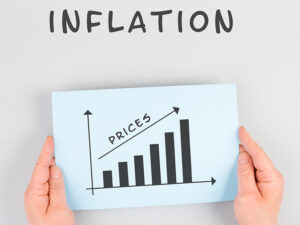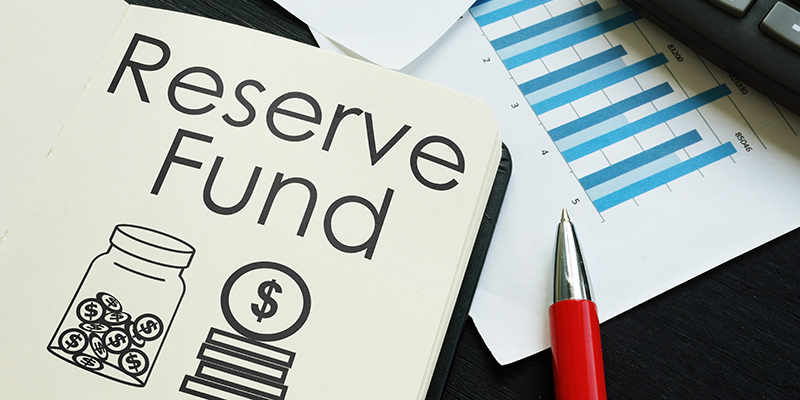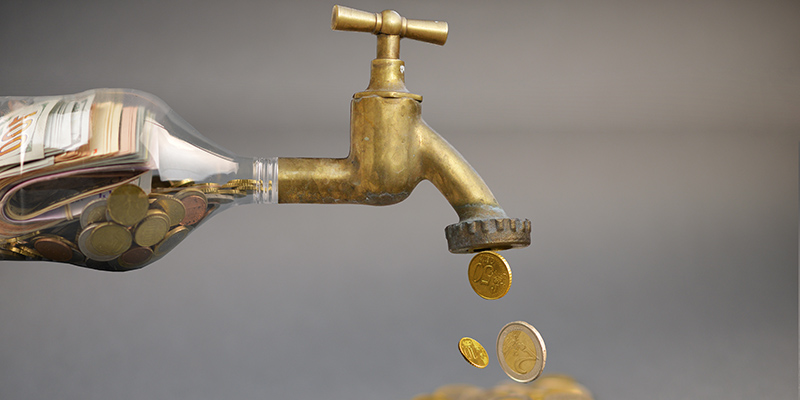What Are HOA Reserve Funds? When Are They Used?
In a lot of ways, homeowners associations are just like corporations. They operate with a budget, are headed by a set of board members, and manage a reserve fund. But, what are HOA reserve funds anyway?
What Are HOA Reserve Funds?
Simply put, a reserve fund is a savings account. It contains funds that the homeowners association will use to pay for the cost of future repairs and replacements. Homeowners association reserve funds differ from operating funds in terms of use. While both are funded by the homeowners, the operating fund covers the association’s regular expenses, whereas the reserve fund covers major repairs and replacements.
For homeowners associations, having a reserve fund is essential. Without a reserve fund, an HOA would have no way of paying for expensive repairs and replacements in the future. Every asset and structure has a useful life. Once that reaches the end of its useful life, it needs to be replaced or repaired. Otherwise, it could pose a threat to the safety of residents.
In some scenarios, an HOA will turn to the homeowners for immediate funding. If, for example, a particular building needs urgent foundational repairs, the association will resort to levying hefty special assessments to cover the cost. Neither scenario is ideal, as they can put homeowners in a financial bind or place them in imminent danger. With a properly funded reserve account, HOAs can avoid all of this.
What Can HOA Reserve Funds Be Used For?
In general, reserve funds are used to cover the cost of major repairs and replacements in the future. The exact specifics of this will depend on the bylaws or CC&Rs of the community. Some associations allow the board to use the reserves to pay for unexpected costs, i.e. those that do not occur on a regular basis. Others use it exclusively for any assets that require large repairs or replacements. And then there are also associations that set aside reserves to pay for construction projects.
Determining Adequate Reserve Funding for HOA
 When talking about an HOA’s reserves, one question that always seems to pop up is exactly how much to put in the fund.
When talking about an HOA’s reserves, one question that always seems to pop up is exactly how much to put in the fund.
But, reserve fund accounting for HOA communities is not as easy as simply offering a dollar amount. Homeowners associations have different needs, and even the type of association can influence the possible repairs and replacements it will require in the future. For example, a condo community may need to replace or repair its elevators in the future, but not all single-family communities have elevators.
To know the adequate level of funding for your reserves, it is important to hire a professional to conduct a reserve study. A reserve study will determine the estimated remaining useful life of each asset in your HOA and how much it will cost to repair/replace them. This will give the HOA board an idea of how much the HOA will need to save and how long it has to do so.
Now, a lot of things can change after the completion of a reserve study. This is why it is a good idea to update the study once every few years. Some states even require associations to perform reserve studies, such as California, Virginia, and Colorado. And then there are also a few states that require HOAs to maintain a reserve fund but don’t require reserve studies. Massachusetts and Minnesota are two that come to mind.
Ideally, every homeowners association should have a fully funded reserve account. That means the HOA can cover 100% of the cost of future repairs and replacements. Unfortunately, this is not the reality for most associations. A good rule of thumb, though, is to reach at least 70% of the association’s requiring reserve funding.
Who Pays for the HOA Reserve Fund?
The money used to maintain an association’s reserve fund comes from the homeowners themselves. Reserve contributions are included in the calculations for the upcoming year’s dues. While the HOA board is in charge of this responsibility, board members are not exempt from the contributions. Both board members and regular homeowners have to pay their dues and contribute to the reserves equally.
Borrowing HOA Reserves: Is It Legal?
Generally, an HOA board should not spend the reserve fund for anything other than its intended purpose. But, there are times when an association will find itself in dire need of money to pay for operating expenses. In this case, the board may be able to make an exemption based on state laws and the governing documents.
For instance, California Civil Code Section 5515(a) allows HOA boards to authorize the temporary transfer of funds from the reserve account to the operating account without membership approval. This is only done, though, to meet short-term cash flow needs. However, the board must include notice of intent to transfer funds in a notice of the board meeting. The board must also restore any borrowed funds from the reserve account within one (1) year.
Investing Your HOA Reserve Funds
 Because the money in an HOA’s reserve account tends to sit untouched for long periods of time, many boards consider the possibility of investing the funds. The board generally has the authority to do this, though it is still worth checking state laws and the association’s governing documents.
Because the money in an HOA’s reserve account tends to sit untouched for long periods of time, many boards consider the possibility of investing the funds. The board generally has the authority to do this, though it is still worth checking state laws and the association’s governing documents.
When considering potential investments, an HOA should go for a plan that offers no risk at all. Keep in mind that the money in the reserves does not belong to the board. As such, it is important to be prudent with the money.
In addition to risk, boards should also take liquidity into account. An HOA should be able to withdraw money from its reserves at a moment’s notice. Thus, it is best not to go for investments that have a lock-in period. The only downside to a risk-free investment plan is that it does not offer high yields. Sometimes, though, a savings account is enough to keep the money safe, at the ready, and still earning interest.
The Need for Professional Help
It is essential for homeowners and condo associations to maintain HOA reserve funds. But, you can’t truly know how much you need in the account if you don’t perform a reserve study. Reserve studies can’t be done by the board alone. They require the assistance of certified professionals, such as accountants and engineers. It also helps to have good HOA management software to keep track of your reserve study and level of funding.
Condo Manager is an all-around HOA management software that both homeowners associations and HOA management companies use. Call us today at (800) 626-1267 or contact us online for a free demo.
RELATED ARTICLES:
- What Is A HOA Reserve Study And Does Your HOA Need It?
- 9 Of The Most Important Duties Of An HOA Property Manager
- What Is An HOA Fee? What Are Homeowners Paying For?



 The second portion of the reserve study analyzes the current financial status of an HOA Your reserve specialist will look at
The second portion of the reserve study analyzes the current financial status of an HOA Your reserve specialist will look at 
